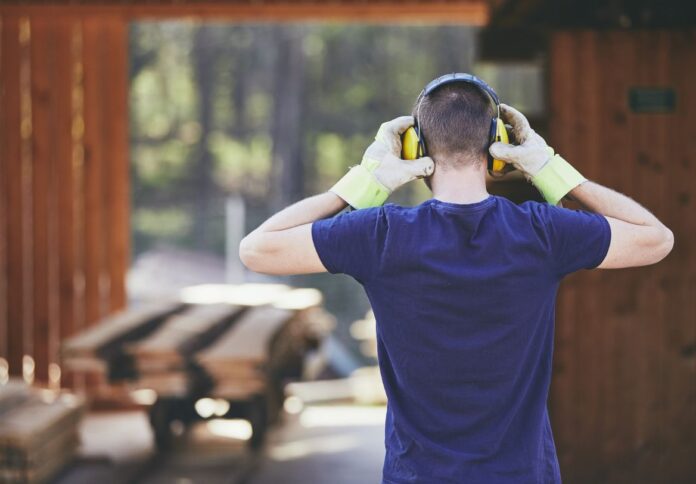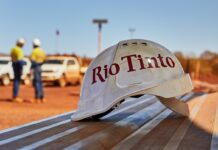
Media Release
More than 1.1 million workers in Australia continue to be exposed to harmful levels of noise in their workplace¹. And as National Safe Work month kicks off, Hearing Australia is urging workers across all industries to protect their ears from dangerously loud sounds.
According to the World Health Organization (WHO), noise exposure contributes to 22 per cent of workplace-related health issues. In Australia, hearing loss due to excessive noise from machinery and power tools is one of the most widespread, yet preventable, workplace injuries.
“The workplace is one of the most common sources of noise-induced hearing loss (NIHL). However, this is by far the most preventable kind of hearing loss,” says Karen Hirschausen, Hearing Australia Principal Audiologist. “Workplace noise can and should be managed by implementing a range of control methods – and that can be as simple as limiting time spent in noisy environments, using quiet equipment and ensuring you wear appropriate hearing protection.
“People often ask ‘what’s too loud?’ Essentially, if you’re in a situation where you need to raise your voice to be understood at conversational distance (1-2 metres), then the noise is probably too loud. Repeated or lengthy exposure to sounds above 85 decibels, which is approximately the level of a forklift or front-end loader, can cause permanent damage.”
According to Safe Work Australia, the sectors with the highest rates of workers compensation claims due to occupational hearing loss are construction and manufacturing. “But there are many other industries that are at an increased risk of NIHL, which can result in irreversible tinnitus and/or hearing loss,” Karen says. “For example, airline workers, emergency responders, DJs and musicians, farmers – even teachers.”
It’s estimated that more than half a million Australian workers experience constant tinnitus5, which is a ringing or buzzing sound in the ears. Tinnitus can result in sleep loss, concentration disturbance, decreased sound tolerance, anxiety and depression.
Karen says early intervention is critical. “Workers live with the legacy of hearing loss long after they put down their tools. That’s why it’s so important for people who work in noisy environments to stay on top of their hearing health,” she says. “Employees and employers alike need to step up. Get regular hearing checks and if you notice any changes, you should see an audiologist. The key is to not delay getting help. Untreated hearing loss can lead to social isolation, loneliness, mental health problems and reduced quality of life8. If you understand the hazards of noise and how to practice good hearing health, you can protect your hearing for life.”
Hearing Australia client, 78-year-old Collin worked in the construction industry for more than 30 years – during which time he says he never wore any hearing protection. “I knew my hearing had been affected because I kept asking people to repeat themselves and found it difficult to hear in noisy environments,” he says. “I later found it was near impossible to follow conversations in restaurants, and my wife had to raise her voice when speaking to me. I realised I needed to do something about my hearing.
“With the care and support I’ve had from Hearing Australia, I’m truly amazed at how my hearing has improved and the difference that hearing aids have made in my life. I’m no longer missing out on everyday sounds like hearing the birds in the trees, and my wife is no longer complaining about me having the TV volume up too loud.”
Hearing Australia Managing Director, Kim Terrell says the organisation is actively collaborating with stakeholders to co-design initiatives that will help to prevent NIHL in high-risk industries.
“For 75 years, Hearing Australia has been caring for Australians affected by hearing loss, starting with help for returned war veterans in 1947,” Kim says. “NIHL is avoidable, and it remains a key area where action is needed with 37 per cent of adult hearing loss estimated to be preventable8. We’re committed to working with government and industry to help Australians protect and preserve their hearing throughout their lives so they can stay connected to the people and life they love. Whether you’re looking for information about hearing health and ways to protect your hearing at work, or if you’re concerned about your hearing and want to get a hearing check, our team is here to help.”
In time for Safe Work Month, Hearing Australia has released a new factsheet Protecting your hearing at work, with useful information on noise-induced hearing loss and top tips for protecting your hearing at work. This is available at Hearing Australia’s website – www.hearing.com.au/Hearing-loss/Prevention.




















